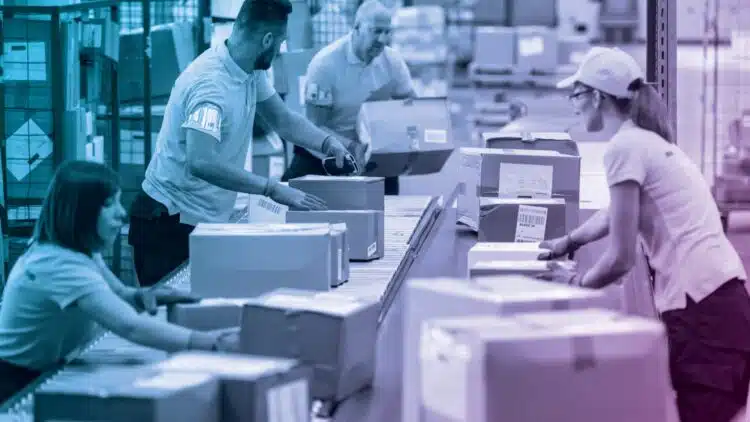NOTE: This article was originally published on the DC Velocity Blog Logistics Problem Solving on May 5, 2017.
Shippers continually face challenges, some of which seem to resist resolution. Oftentimes bringing an experienced logistics consultant onboard provides a different perspective, just what is needed to overcome a particular challenge. However, before committing to a logistics solution to support your in-house logistics, look for these five traits when choosing a logistics consultant.
In-house Software Offers More Customization than 3PLs
First, it is important to understand the differences between managing logistics in-house with consulting and software support, or outsourcing to a 3PL. Engaging a logistics consultant with software tools deployed in-house can provide shippers many advantages over a 3PL. The logistics consultant provides additional intellectual horsepower that many shippers think they are getting from a 3PL, but usually are not. Coupling the logistics consultant with in-house logistics management allows a shipper to leverage logistics as a competitive advantage. By controlling the way the software is deployed, it can be tailored to their exact needs.
Using a 3PL instead of software deployed in-house often results in a shipper receiving about 80% of what they really need. Because a 3PL is built to serve a wide range of customers, they are not quite able to truly customize their service to fully meet a shipper’s needs. So challenges never quite get completely resolved; strategies never quite work as expected. What it comes down to is shippers need to take control of their logistics, but in a more agile way. This leads to innovation and this innovation is what creates a competitive advantage.
Take Control of Your Logistics
A logistics consultant guides the shipper to take full control of their logistics by selecting and deploying the right software. When choosing the provider, the first step is to talk with them to see if they understand what you are trying to accomplish. They should be able to show you real-world examples of solutions they have created for the problems that you have. RFPs and canned presentations don’t provide enough detail to see if the provider can deliver the solution you’re looking for, or rather the solution that will allow you to overcome the challenge at hand. Many shippers have told me that they’ve never seen a system fail in a PowerPoint presentation. Discussing actual scenarios and how solutions were implemented are invaluable during your selection process.
Five Traits to Look for When Choosing a Logistics Consultant
Here are five traits to consider as you evaluate potential logistics consultants and software providers.
- Good Listener
Is the logistics consultant really listening to the shipper or are they only good at listening to their own voice? - Transparency
The consultant should be backing up all of their recommendations with cold hard facts that can be verified by the shipper. - Directness
The logistics consultant should have very clear recommendations. The old adage ‘the customer is always right’ does not apply here. Sometimes the customer is wrong. The logistics consultant must ask the right questions to truly understand the problem to ensure their recommendation will solve the underlying problem, and not just a symptom. - Real Solutions
Does the logistics consultant have more than ideas? Do they have software solutions that can be implemented to solve the problem at hand? - Technical
Does the consultant own the IP for their software solutions, or are they using another company’s canned software? Customized solutions cannot be obtained with software that cannot be customized.
A warning sign that your problems will not be solved with a particular provider is when the consultant or software (or both) is too formulaic, too standardized, or lacks flexibility. If it feels like you are always trying to fit a square peg in a round hole, this is not a fit. You shouldn’t have to adapt your business to what the consultant is saying, or how the software works. Instead, the consultant should be enhancing your ideas to take them from good to great, and the software should allow you to do this quickly and easily. This type of collaboration will allow you to improve outcomes and leverage your logistics as a competitive advantage.





